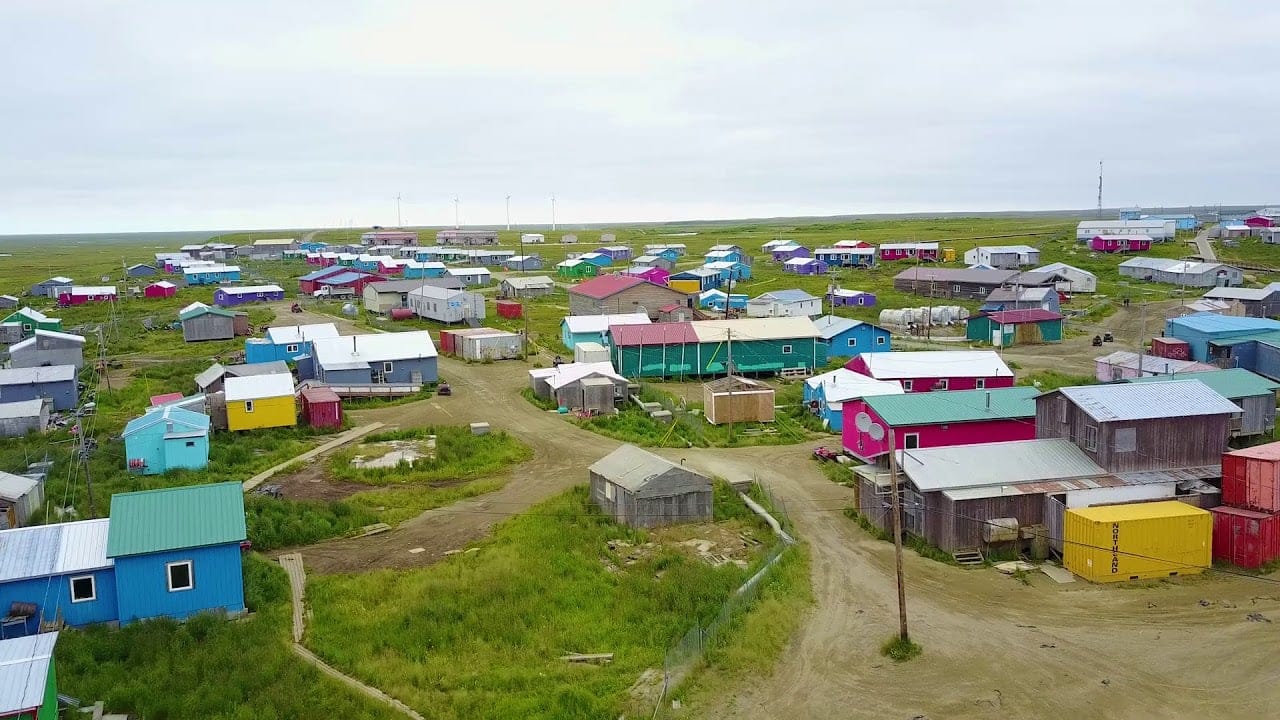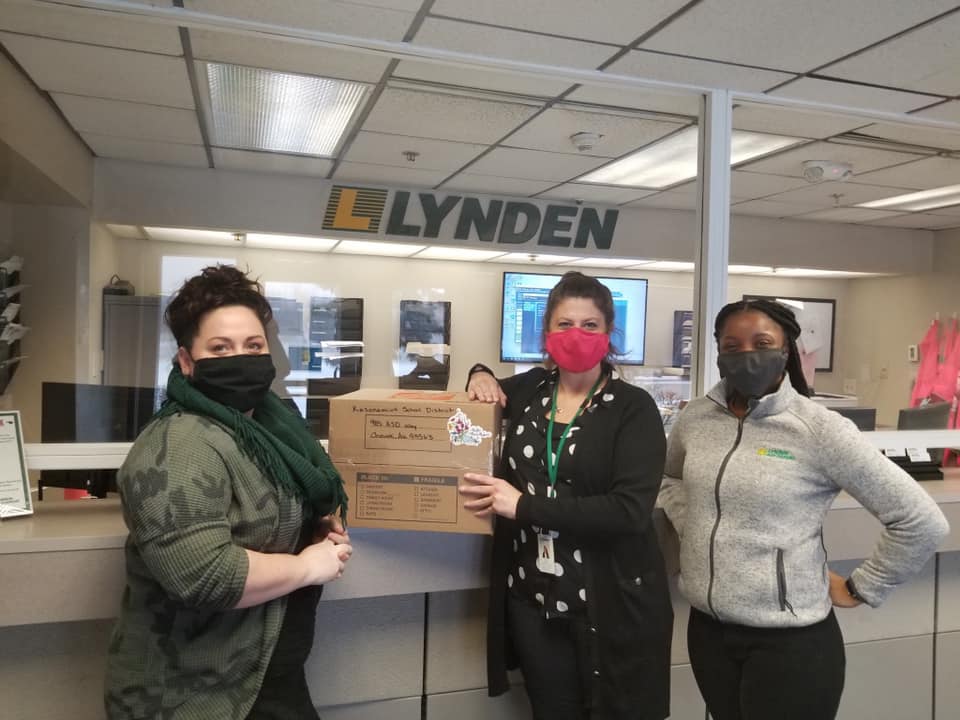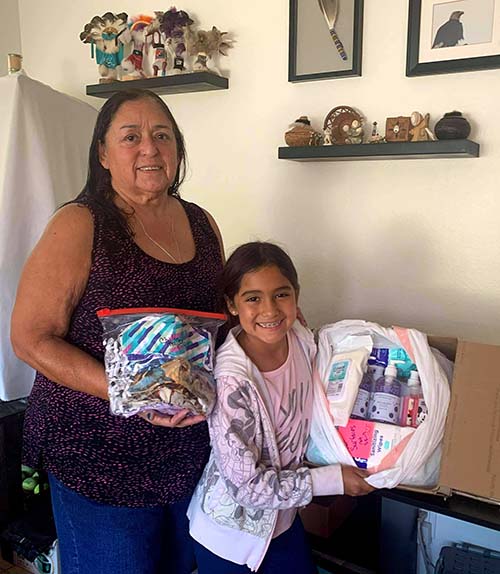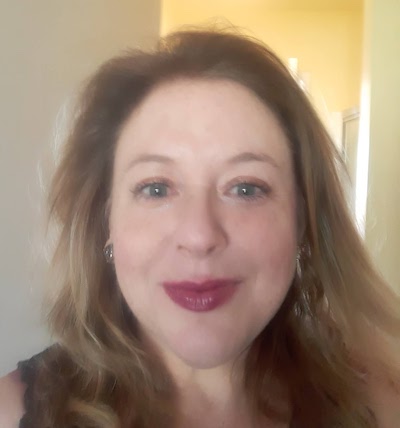
- Details
- By Tamara Ikenberg
CHEVAK, Alaska — In a remote Alaskan village, it’s easy to feel like nothing can touch you, not even Covid-19.
“Before the virus came, we were kind of skeptical of it and didn't really believe in it. We were isolated from the city, from everybody else. We are in our own little bubble. We felt very safe in our village,” said lifelong Chevak resident Mary N. Marvin, who is Qissunamiut. “But we weren't. We were no longer safe in our little bubble.“
That imaginary barrier burst in early October, when Covid-19 started creeping into Chevak, and Marvin’s sister was one of the first to get it. Marvin had to quarantine in Chevak’s makeshift four-room hotel, and her sister has since recovered.
Yukon Kuskokwim Health Corporation’s latest numbers 326 of Chevak’s 1,075 residents have contracted the virus. Lockdown will continue through Dec. 16, according to a press release issued last Wednesday by the Chevak Traditional Council. No one has died of the virus yet in Chevak, but there have been 2,312 cases and 12 deaths in the Yukon Kuskokwim Delta where Chevak is located, according to the Yukon Kuskokwim Health Corporation.
Chevak is the only village of Alaska’s Cup’ik people, though other Alaska Natives, including the Yup’ik, also live there.
Covid-19 is now spreading exponentially through the Yukon-Kuskokwim Delta, or YK Delta region. An area the size of Oregon, the region’s population is 82 percent Alaska Native, and is filled with vulnerable villages in no way prepared to deal with a pandemic. In fact, they’re set up for maximum spread in isolated, hard-to-reach areas, with households containing multiple generations. There are 11 people in Marvin’s house.
Throughout the region, PPE is being reused, supplies are scarce, severe weather has caused some testing sites to close, and the situation is dire.
“Families are having to bury their own family members,” said California-based Tlingit and Dakota activist and artist CeeJay Johnson, who has been raising awareness and funds for Chevak since October. “Sons and daughters are putting their parents in body bags and burying them.”
In the YK Delta village of Akiak, population 400, the Yukon Kuskokwim health Corporation has reported 204 Covid-19 cases so far. There, the Ivan family (Yup’ik) has just faced the worst case scenario, when 84-year-old Lucy Ivan died of the virus last Saturday.
Lucy’s granddaughter Cynthia wrote about her grandmother’s death in a Facebook post that was published in a slightly edited version by the Anchorage Daily News earlier this week.
“There was no traditional or religious burial at the church. Rules had to be broken on how her body was handled because she was Covid-19 positive. They were only able to wash her face, hands and put a qaspeq on her. The ones who were in the home handled her body — her sons and daughter. (It is not customary for immediate family to handle the body of a deceased person). They placed her in two body bags provided by Yukon-Kuskokwim Health Corp. that came with instructions. All her belongings could not be shared with any of her family. They were all burned. There was no viewing of her body, her children and grandchildren could not see her one last time. Again only those who lived with her were only able to place her in her coffin and nail it shut. They themselves had to carry her out of her home and drive her to the cemetery and there we buried my grandma without being able to embrace or comfort one another. No other family from the village was there. The pastor did the burial on speaker phone. We sang two songs, then she was covered and all went to our own homes. No feed, no feast took place.”
Ranging in population from roughly 25 to 1,000, the villages of the YK Delta are places with no medical facilities or services aside from community health aides. The weather is severely cold, and one grocery store often serves the whole community. Several homes do not have clean running water, and shortages of food and necessities are common every winter, whether a virus is raging or not.
In Chevak, villagers are used to calling in their grocery orders, and often waiting a day or more for delivery.
“The grocery store is running out of things,” said Yup’ik Chevak resident Mary Ulroan. “Even without the Covid when the weather is bad, our shelves could be empty at the stores.”
Although there is medical care and a handful of ventilators available at the regional Yukon Kuskokwim Delta Regional Hospital in Bethel, the most severe cases need to be medevaced more than 500 miles to the Alaska Native Medical Center (ANMC) in Anchorage, on a flight lasting more than an hour.
As of Monday, Nov. 23, 45 of the 48 YK-Delta villages were either under lockdown, hunker-down, or had shelter in place orders, according to Vivian Korthuis, CEO of the Association of Village Council Presidents.
On Monday night, Korthuis joined regional medical professionals and Dr. Anne Zink, the state’s chief medical officer, in a Facebook Live meeting where they brought residents up to date on the crisis and answered questions.
The experts concurred that healthcare capacity will be overwhelmed in the next couple weeks if the spread isn’t brought under control.
ANMC Acting Administrator Dr. Robert Onders said the critical care unit is already over capacity and cannot hold all the hospital’s critical Covid-19 patients.
“We’re extremely tenuous right now,” Onders said. “With the case counts it's going to get worse… The critical care staffing and beds are so limited in this state.”
Dr. Ellen Hodges, chief of staff for the Yukon-Kuskokwim Health Corporation, said Yukon Kuskokwim Delta Regional Hospital could also be overwhelmed soon.
“We’re sort of in the yellow status. We’re a little bit on the edge of tipping over [into the red status]," Hodges said. "But with the increase in case counts, every day more and more cases, I’m concerned that we will reach the capacity soon… Now is the time to act to reduce our case loads and try to prevent us from completely overwhelming the entire health care system,” said Dr. Ellen Hodges,
On a brighter note, Zink announced that she expects the Pfizer vaccines to arrive in the YK Delta within the next three weeks, and the Moderna vaccine to follow in about a week.
“It’s dark right now, but we know the sun will slowly start to come back,” Zink said. “As the sun starts to come back, we’re going to have more and more vaccine.”
Zink also doubled down on warnings for people to stay at home for the holidays and not take part in big gatherings.
 The Alaska Mask Makers group sent masks to the remote village of Chevak via Lynden Air Cargo. (Violet Kaye)
The Alaska Mask Makers group sent masks to the remote village of Chevak via Lynden Air Cargo. (Violet Kaye)
Volunteers in Alaska and across the country who have made it their mission to help Chevak and the villages with supplies and support since October, do not think Native corporations and the state did enough to plan and prepare for the inevitable spread to remote villages.
“I'm just so heartbroken over what's happening in rural Alaska,” said Dr. Reem Sheikh, a New York City podiatrist who is heading up efforts to help the villages. “Alaska had the warning, they had the time. This should not be happening.”
Dr. Sheikh, who has been working on the front lines to combat Covid-19 in New York, recently won a University of Alaska Anchorage 2020 Emerging Leader Alumni of Distinction Award for the personal protective equipment campaign she organized for health care workers and several organizations in New York City and Anchorage.
In April, a video Dr. Sheikh made about the urgent need for PPE for healthcare professionals in New York went viral.
Dr. Sheikh said her secret weapon is the army of moms she already knew from other online groups that she has recruited to join the cause. She noted that it is a team effort and she just acts as a coordinator and connector.
So far, Dr. Sheikh and her team have sent masks to more than ten rural Alaskan villages, in addition to several health care workers all over Alaska. And in July, they sent nearly 5,000 masks, along with more PPE, to Anchorage.
Dr. Sheikh and other volunteers are using social media to spread the word on Facebook groups, including Rural Alaska COVID-19 Alliance and Alaska COVID Response.
Generating widespread support for places so far away and largely unknown by the Lower 48 has been one of the biggest problems, according to Johnson.
“When the Navajo Nation got hit, there was this outrage and this outpouring of support. I sent stuff and money to them, so I'm glad. But you see Alaska and these communities that are getting hit harder and nothing,” she said of the response to help Alaska Native villages. “People can relate to the Navajo. You hear about them more. There are the code talkers. They can't really relate to Alaskans cause they're remote. They don't really know a lot about them. It's just really hard trying to get the word out there and get help for them. It's damn near impossible actually.”
Despite the obstacles, Johnson is determined to make the impossible possible.
Through her GoFundMe for Rural Alaska COVID Relief, Johnson is attempting to get a chartered plane full of masks, cleaning supplies, and more necessities sent from Anchorage to Bethel, and then to Chevak. The effort has raised about half of its $20,000 goal.
“We get one shot with this. The planes can’t go out there all the time. So we're trying to fill one plane as much as we possibly can with supplies,” Johnson said. “The problem is, it's been slow getting people to realize what's happening there and facilitating and organizing donations.”
Johnson noted that planes with supplies have already been sent from within Alaska by other groups of volunteers. For her particular plan, Johnson has contacted three transportation companies for help, and is still trying to work out the logistics.
A glance at the Facebook groups shows that Sheikh, Johnson and other committed volunteers are inspiring folks all across Alaska and the country to help save the villages.
 The Castaneda family from southern California sent cleaning supplies, masks and more to small remote Alaska villages combatting Covid-19.(Christine Castaneda)Helpers from California, New York, Oklahoma, Colorado, and more, as well as communities within Alaska, are donating and posting photos of themselves and the supplies they have sent out.
The Castaneda family from southern California sent cleaning supplies, masks and more to small remote Alaska villages combatting Covid-19.(Christine Castaneda)Helpers from California, New York, Oklahoma, Colorado, and more, as well as communities within Alaska, are donating and posting photos of themselves and the supplies they have sent out.
The Village of Metlakatla raised more than $700 to help, and was thanked with a heartwarming photo of Chevak kids with a sign saying “Thank You Metlakatla.”
Janice Chukwak, a Yup’ik resident of the village of Levelock, has been working with people like Sheikh and Johnson to raise awareness and funds, and is grateful for the support of such powerful and committed advocates.
“We've got some pretty amazing women with great connections,” Chukwak said.
When Covid-19 started hitting the villages, Chukwak was very disappointed in the shortage of assistance from the state.
“At first I was angry and then I thought if they're not going to be willing to help us, then we have to stand up and help ourselves. And we have to start with raising awareness. We don't have the medical personnel, we don't have the medical facilities. We don't have cleaning supplies,” Chukwak said. “We need to start getting the needed supplies into the villages that are most impacted. If we sit and wait for the government to step in, we're going to lose a whole bunch of people that we don't need to lose...one thing that's really unique about Alaska is, we're used to [challenges] and we find ways to work around whatever challenges we have.”
Chevak resident Ulroan feels good knowing so many volunteers are working tirelessly to assist in this time of crisis.
“A lot of people are putting themselves out there to help us out,” Ulroan said. “We're just really grateful for all the help that we're getting from the outside and from other communities and other people. it's more than enough just for them to give that helping hand.”
More Stories Like This
Native News Weekly (August 25, 2024): D.C. BriefsZuni Youth Enrichment Project Announces Family Engagement Night and Spring Break Youth Programming
Next on Native Bidaské: Leonard Peltier Reflects on His First Year After Prison
Deb Haaland Rolls Out Affordability Agenda in Albuquerque
Boys & Girls Clubs and BIE MOU Signing at National Days of Advocacy
Help us defend tribal sovereignty.
At Native News Online, our mission is rooted in telling the stories that strengthen sovereignty and uplift Indigenous voices — not just at year’s end, but every single day.
Because of your generosity last year, we were able to keep our reporters on the ground in tribal communities, at national gatherings and in the halls of Congress — covering the issues that matter most to Indian Country: sovereignty, culture, education, health and economic opportunity.
That support sustained us through a tough year in 2025. Now, as we look to the year ahead, we need your help right now to ensure warrior journalism remains strong — reporting that defends tribal sovereignty, amplifies Native truth, and holds power accountable.
 The stakes couldn't be higher. Your support keeps Native voices heard, Native stories told and Native sovereignty defended.
The stakes couldn't be higher. Your support keeps Native voices heard, Native stories told and Native sovereignty defended.
Stand with Warrior Journalism today.
Levi Rickert (Potawatomi), Editor & Publisher

